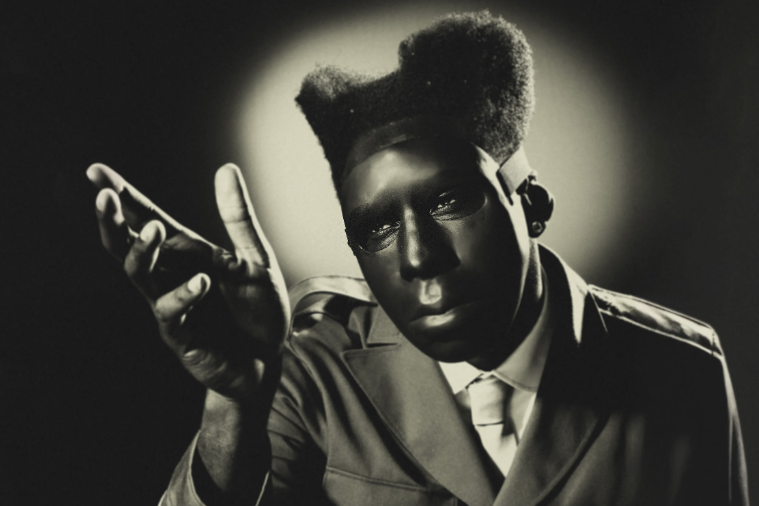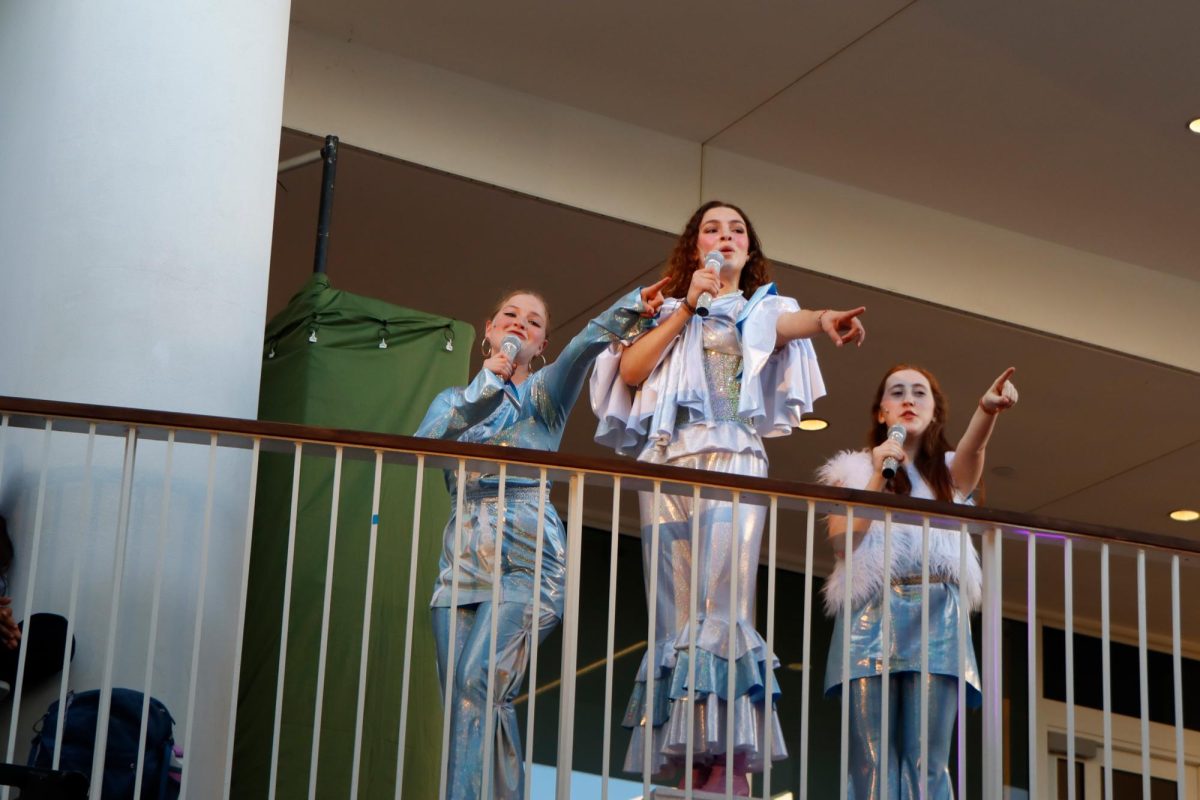Disclaimer: AJR’s “The Maybe Man” album may not be appropriate for younger audiences, as it includes explicit language and references to addiction.
Senior year is not only about seeking the unknown territory of the future but also reflecting on the harrowing hypotheticals of the past. As I wrap up my first semester, I am constantly thinking about the overwhelming questions of high school — whether I interacted with a certain person enough or if I should have made a different decision back then. But, am I the only one rethinking my life?
Enter “The Maybe Man,” AJR‘s newest album that spotlights a peculiar superhero. AJR is an American indie pop trio of three brothers Adam (bassist), Jack (lead vocals) and Ryan (pianist/vocals/producer) known for their creative music production and relatable songwriting. “The Maybe Man’s” mission is to wrestle with impossible questions: What else could I have done with my life? Who else could I have ended up with? Could things have been different?
Our superhero has no cape, costume or mask. Instead, as illustrated in the opening number’s animated music video, he wears a white t-shirt, blue shorts and his infamous trapper cap. Our hero, Jack, is no imaginary figure — he is someone who looks just like us, and he faces the most relatable, difficult question of all: Who am I?
As their fifth studio album, “The Maybe Man” is their most personal album to date. Within the past two years, the brothers have experienced turmoil in both their career and personal lives, including the death of Gary Met, their father and No. 1 fan. In turn, these personal experiences have inspired their songwriting.
In terms of music production and structure, the album is a stark contrast to their previous album, “OK Orchestra.” Instead of being inventive with computer-generated instruments and sounds, the band opts for real instruments. With the acoustic guitars, trumpets and drums that blend harmoniously within the tracks, AJR quickly transports their listeners to the warm but chaotic landscape of their minds.
Were there aspects I thought were missing from the album? Absolutely.
This album was the first released under their new record label, Mercury Records, whose other artists include Post Malone and Zayn. In comparison to the previous albums’ hard-hitting audio mixing done by Ryan Met under their independent production company, AJR Productions, this album is professionally mixed. Because of this, the drums sound softer and leave less of a satisfying punch when the beats drop in songs like “Inertia.” Moreover, the jarring juxtaposition of the outros in “Maybe Man,” “Yes, I’m A Mess” and “2085” feel detached from melodies earlier in the pieces.
But none of their previous albums have reached out to the audience quite like “The Maybe Man” has. Because if you must know something about AJR fans — they don’t simply hear the music, they listen carefully to the lyrics in every song. And AJR is aware of this.
Some say AJR lacks the ability to be deep, claiming their songs are the by-product of the generic landscape the pop world has become. I disagree.
I think AJR has a quiet genius to their lyrics. The words scribbled between strumming guitars and choirs of violins may appear simple, but the most obvious truths are the ones we overcomplicate. The Maybe Man’s superpower is to overthink, but through his clever and honest spiraling, the listener can visualize their own insecurities. Above all, by sharing his own self-doubt, “The Maybe Man” comforts the listener with the power of empathy and community. View how “The Maybe Man” uses unique lyrics to connect with the listener in the song-by-song review in the sidebar.
Each song highlights that as we age, connection becomes more important to our lives. The only solo song in the album, “God Is Really Real,” is a testament to Gary’s life and the impact of his death. There is no one else harmonizing with Jack as he sings about the death of his father, highlighting how our hero has finally figured out what truly matters: connection.
There is a purpose to the entire album being a loop with the end of “2085” directly linking back to the beginning of “The Maybe Man.” If the listener forgets what they’ve learned, they can turn to “The Maybe Man” again and again to be comforted by our struggling hero and remind themselves how vital relationships are to life.
Because, as Jack says in both the opening and ending tracks, “for two or three minutes, then I’m gone,” symbolizing the short lifespan we have on earth.
By being their true, unapologetic selves, AJR has reminded everyone how valuable authenticity is in music. Unlike others in the pop industry, AJR always succeeds at being real, which shines through in their music, especially in “The Maybe Man.”
This album isn’t perfect, but it doesn’t need to be. In a chaotic, isolated world, authenticity, relatability and togetherness are key. If you are finding yourself rethinking your life, seeking some form of comfort or if I’ve made you the slightest bit curious about who “The Maybe Man” is, I’d suggest taking a listen.
-
Lyrics
-
Enjoyment
-
Impact
-
Sound Quality
Summary
American indie pop trio AJR, named after the band’s three brothers Adam, Jack and Ryan, released their fifth studio album, “The Maybe Man,” Nov. 9. In the 12-track album, the trio presents the mind of an unlikely superhero, The Maybe Man, and his journey of existentialism. While the album’s music production was softer and ranged vastly, AJR’s intelligent lyrics emphasize the value of connectivity in a calamitous world.
















